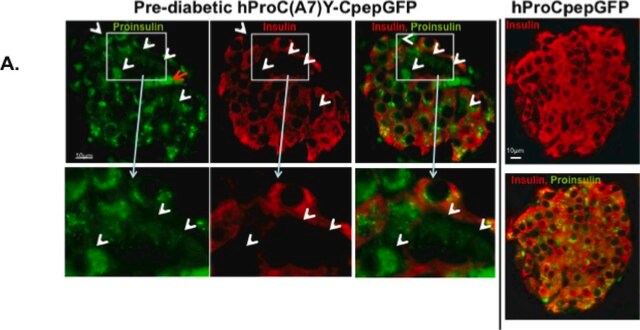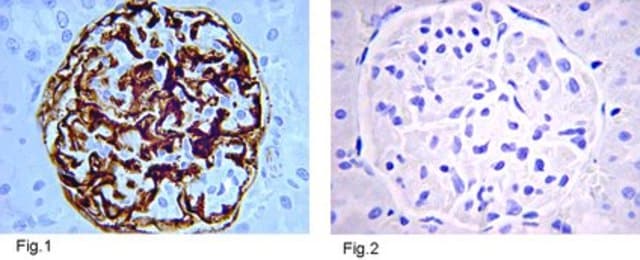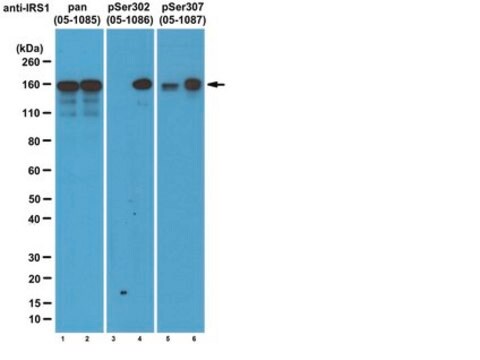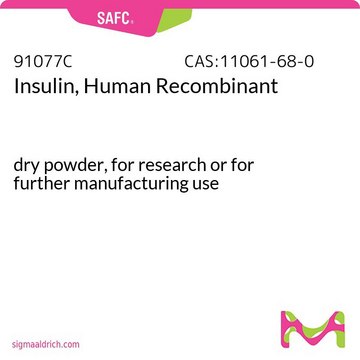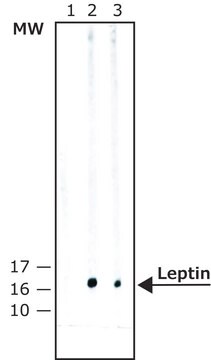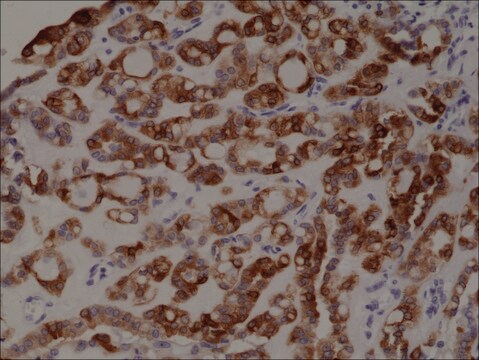SAB4200691
Anti-Insulin antibody, Mouse monoclonal
clone K36AC10, purified from hybridoma cell culture
Sinónimos:
INS
About This Item
Productos recomendados
origen biológico
mouse
Nivel de calidad
forma del anticuerpo
purified immunoglobulin
tipo de anticuerpo
primary antibodies
clon
K36AC10, monoclonal
formulario
buffered aqueous solution
reactividad de especies
guinea pig, porcine, bovine (proinsulin), rat, monkey, sheep, dog, horse, human (insulin ), rabbit
técnicas
immunoblotting: suitable
immunocytochemistry: suitable
immunofluorescence: 2.5-5 μg/mL using ß -TC-6 Mouse Embryo Pancrease Insulinoma cells.
immunohistochemistry: 10 μg/mL using heat-retrieved formalin-fixed, paraffin-embedded human pancreas sections and Biotin/ExtrAvidin®-Peroxidase staining system.
radioimmunoassay: suitable
isotipo
IgG1
Condiciones de envío
dry ice
temp. de almacenamiento
−20°C
modificación del objetivo postraduccional
unmodified
Información sobre el gen
bovine ... Ins(280829)
dog ... Ins(483665)
guinea pig ... Ins(100379579)
horse ... Ins(111776000)
human ... INS(3630)
pig ... Ins(397415)
rabbit ... Ins(100009181)
rhesus monkey ... Ins(704534)
Descripción general
Inmunógeno
Aplicación
Acciones bioquímicas o fisiológicas
Forma física
Información legal
Cláusula de descargo de responsabilidad
¿No encuentra el producto adecuado?
Pruebe nuestro Herramienta de selección de productos.
Código de clase de almacenamiento
10 - Combustible liquids
Clase de riesgo para el agua (WGK)
WGK 1
Punto de inflamabilidad (°F)
Not applicable
Punto de inflamabilidad (°C)
Not applicable
Certificados de análisis (COA)
Busque Certificados de análisis (COA) introduciendo el número de lote del producto. Los números de lote se encuentran en la etiqueta del producto después de las palabras «Lot» o «Batch»
¿Ya tiene este producto?
Encuentre la documentación para los productos que ha comprado recientemente en la Biblioteca de documentos.
Nuestro equipo de científicos tiene experiencia en todas las áreas de investigación: Ciencias de la vida, Ciencia de los materiales, Síntesis química, Cromatografía, Analítica y muchas otras.
Póngase en contacto con el Servicio técnico